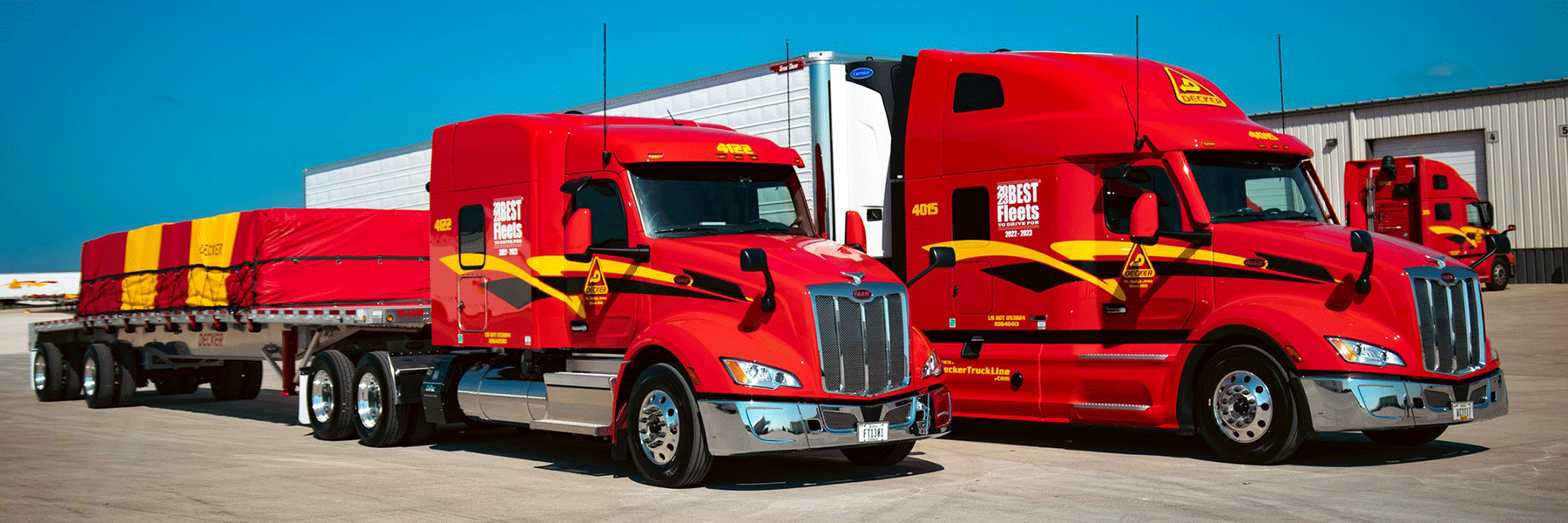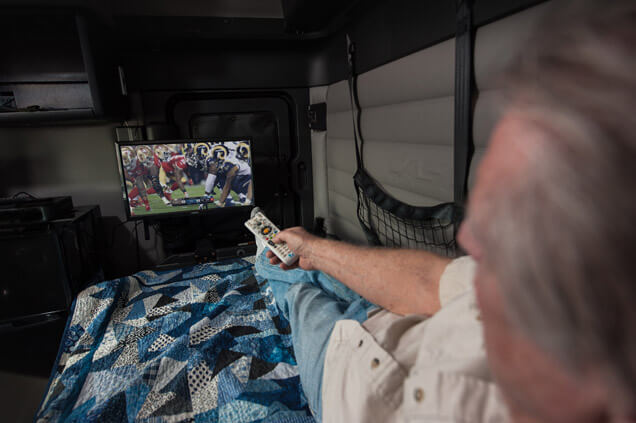Understanding the working conditions of a truck driver is essential if you are considering a career in the field.
Whether you’re a fleet manager or are driving the big rigs, there are a large number of associated responsibilities. Working as a long-haul truck driver is essentially a lifestyle choice because workers can be away from home for multiple days or weeks at a time. Before getting yourself into the field, here’s what you need to know about the working conditions and what to expect as a truck driver, and what fleet managers can do to make it better.
Continue scrolling to learn more below.
The Working Conditions of a Truck Driver
The working conditions of a truck driver are typically confined to the rig they are driving. However, there are some situations where they will work in an office, warehouse, or factory setting. There are no defined work hours in most cases, but most drivers spend 40 or more hours each week to ensure deliveries are made on time.
Because the majority of the work hours are spent inside a truck cab for hours at a time, it is unlike many other occupations. Most of the time on the road is spent alone, which means that truck drivers should have a strong dedication and resolve to make their mental health a priority.
It is crucial for drivers to be a certain level of physical fitness. Sometimes forklifts are unavailable at pickups or drop-offs, and operating a pallet jack is necessary to move inventory. This involves moving thousands of pounds on their own.
Safety must be the number one priority for truck drivers in all aspects of their jobs. Preventative vehicle maintenance is crucial since the mechanical components of their trucks must remain in tip-top condition to function correctly. Some of these maintenance jobs are handled by the driver, like oil changes, tire inspections, and other smaller tasks. Other safety concerns include complying with federal, state, and local road laws, such as maintaining alertness and sobriety. Some drivers experience minor bruises or cuts when moving cargo or making repairs.
Big rig drivers will periodically come into contact with employers, customers, clients, and colleagues. This often includes small talk about business-related topics, gathering signatures or verifying shipment completion, collecting payment, filing paperwork, and managing inventory spreadsheets.
The Responsibilities of a Truck Driver
Whether they’re a commercial, regional, or another kind of driver, it is the responsibility of the truck driver to deliver cargo undamaged and in a timely and efficient manner. Many of the destinations are retail stores, distribution centers, manufacturing plants, and more. Here are more of the responsibilities you can expect of a truck driver:
- Getting and maintaining a commercial driver’s license (CDL).
- Transporting finished goods or raw materials from point A to point B.
- Completing deliveries on time.
- Driving in an enclosed vehicle cab on a daily basis for hours and hours.
- Completing preventative maintenance on your truck and outsourcing mechanical issues outside your knowledge.
- Loading and unloading cargo using a pallet jack or forklift.
- Keeping a record of expenses to be reimbursable, such as fuel or tolls.
- Keeping a list of state-mandated inspections and vehicle maintenance.
- Logging all miles driven.
- Entering data into systems to document the completion of deliveries.
- Completing delivery paperwork.
- Staying safe on hauls and implementing defensive driving skills.
- Possibly working more than eight hours in a day, evening, or weekend to meet deadlines.
- Maneuvering trucks into docking bays.
- Reporting damage, defects, violations, and accidents to necessary authorities.
- Understanding and following federal and state laws, including vehicle weight.
- Having positive interactions (or handling negative ones) with freight handlers, dispatchers, and clients.
- And more.
What Fleet Managers Can Do to Improve Working Conditions of a Truck Driver
Set Clear Work Expectations — Nothing lowers productivity and efficiency faster than confusion and a lack of clarity in the workplace. It’s not uncommon for employees to feel mentally drained when they feel unsure of their responsibilities. So, keep your feet as alert and focused as possible by communicating clearly, effectively, and thoughtfully.
Work With an Empathetic Mind and Ear — As a fleet manager, you shouldn’t view yourself as the head-honcho; you are as much a part of your team as your drivers are! Aim to work empathically with your team. This could mean putting your drivers’ needs before profits sometimes. Cultivate a work environment where your crew can talk openly and honestly with you and try to be receptive to any positive and negative feedback.
Simplify the Process for Your Crew — There are many bumps in the road for truck drivers, both literally and figuratively. Fleet managers can improve working conditions by making reporting and scheduling as seamless as possible for your drivers by going digital.
Always Put the Safety of Your Team First — The main job and number one priority of a fleet manager should be the safety of your crew. It is critical to stay on top of truck maintenance which helps prevent accidents. Moreover, it is essential to pay close attention to the fatigue and stress levels of your team. Positive mental health is crucial for your drivers. You can encourage improved mental health by promoting regular communication with family and friends, team interaction, and participating in activities where your crew can unwind, such as watching satellite TV from the comforts of their cabs.
Getting EpicVue Will Improve Working Conditions of a Truck Driver
Working conditions of a truck driver can be challenging, but EpicVue makes it better! EpicVue outfits your trucks with premium in-cab satellite TV featuring more than 180 must-have channels.
Making meaningful connections on the road is difficult, but chatting about the shows you are watching with the people you meet makes it easier. Watching TV during the breaks on long hauls can counteract the heavy feelings of isolation. Happy and healthy truck drivers are much more likely to stay with your fleet, which significantly reduces the expensive and burdensome cycle of recruitment and retention. Contact EpicVue today to learn more!



